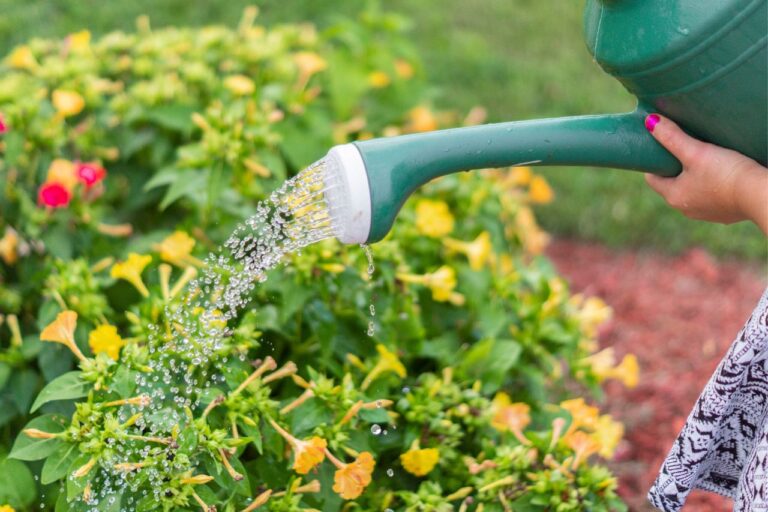Blackwater vs. Greywater: What’s the Distinction?
Confused about blackwater and greywater? Learn their differences and impact on your home and the environment. This article explores their characteristics, sources, and effective management for a sustainable home. Understand their importance for your daily life and the planet. Discover how to improve your water management at home.
Understanding the differences between blackwater and greywater
When it comes to wastewater, it’s important to understand the distinctions between blackwater and greywater. While both types of wastewater are a result of everyday activities, such as bathing, washing dishes, and using the toilet, they differ in their composition and potential impact. Blackwater refers to wastewater that contains human waste, including feces and urine, along with water used for flushing toilets. On the other hand, greywater is wastewater that is generated from sources other than toilets, such as sinks, showers, and laundry machines. It does not include human waste and is relatively less contaminated compared to blackwater.
Blackwater is considered high-risk due to its potential for containing harmful bacteria, viruses, and other pathogens. Therefore, it requires more intensive treatment before it can be safely reused or disposed of. Greywater, on the other hand, poses a lower risk as it typically contains lower levels of contaminants. However, it still requires proper treatment to avoid potential health risks and environmental harm.
Understanding the differences between blackwater and greywater is essential for effective wastewater management. By recognizing the specific characteristics of each type, homeowners can make informed decisions regarding treatment and disposal methods that are both safe and environmentally friendly.
The composition and sources of blackwater
Blackwater is composed of various elements, including feces, urine, toilet paper, and water used for flushing toilets. The combination of these components makes blackwater highly contaminated and potentially hazardous to human health and the environment. The sources of blackwater are primarily toilets, bidets, and similar sanitation fixtures. It is important to note that blackwater should never be mixed with greywater or discharged into the environment without proper treatment.
The high levels of pathogens present in blackwater necessitate specialized treatment methods to ensure its safe disposal or reuse. Common treatment options for blackwater include septic systems, sewage treatment plants, and advanced wastewater treatment technologies. These processes aim to remove or neutralize harmful pathogens, organic matter, and chemicals present in blackwater, making it suitable for reuse or safe disposal.
The composition and sources of greywater
Unlike blackwater, greywater does not include human waste. It mainly consists of wastewater from baths, showers, sinks, and laundry machines. Greywater may contain traces of soap, detergent, dirt, and food particles, but it is generally less contaminated compared to blackwater. However, it is important to note that the composition of greywater can vary depending on the sources and activities within a household.
Greywater can be a valuable resource when managed properly. By implementing appropriate treatment methods, greywater can be reused for various non-potable purposes, such as irrigation, flushing toilets, and outdoor cleaning. Proper treatment of greywater involves removing impurities, such as solids and excess chemicals, to ensure its safety for reuse and minimize potential impacts on the environment.
Health and environmental impacts of blackwater
Due to its high level of contamination, blackwater poses significant health risks if not properly managed. Pathogens present in blackwater can lead to the spread of diseases and infections, both for humans and animals. Direct contact with or ingestion of blackwater can result in illnesses such as diarrhea, cholera, and hepatitis.
In addition to the health risks, the improper disposal of blackwater can have severe environmental impacts. When released into the environment without proper treatment, blackwater can contaminate water bodies, pollute soil, and harm aquatic ecosystems. The nutrients and chemicals present in blackwater can cause excessive growth of algae and other harmful microorganisms, leading to oxygen depletion in water bodies and disruption of ecological balance.
Health and environmental impacts of greywater
While greywater is generally less contaminated than blackwater, it still has the potential to pose health risks if not managed appropriately. The presence of soap, detergents, and other chemicals in greywater can be harmful to plants, aquatic life, and the overall environment. Excessive use of greywater for irrigation, especially without proper treatment, can result in soil degradation, plant damage, and water pollution.
From a health perspective, direct contact with untreated greywater may cause skin irritation, allergies, or gastrointestinal problems. Therefore, it is important to ensure that greywater is treated or used in a manner that minimizes these potential risks.
Blackwater vs. greywater treatment and disposal options
Treatment and disposal options for blackwater and greywater differ due to their varying levels of contamination and potential risks. Blackwater requires more intensive treatment methods to remove or neutralize pathogens and harmful substances before it can be safely disposed of or reused. Common treatment options for blackwater include septic systems, sewage treatment plants, and advanced wastewater treatment technologies.
On the other hand, greywater treatment focuses on removing impurities and excess chemicals, making it suitable for reuse in non-potable applications. Treatment options for greywater include filtration systems, disinfection methods, and the use of natural processes, such as constructed wetlands.
When it comes to disposal, both blackwater and greywater should be handled responsibly to prevent contamination of water bodies and minimize environmental impacts. Proper disposal methods for blackwater typically involve connecting to a municipal sewage system or using a septic tank system. Greywater, on the other hand, can be used for irrigation or discharged into the environment after appropriate treatment, depending on local regulations and guidelines.
Implementing blackwater treatment systems in your home
Implementing blackwater treatment systems in your home can significantly reduce the environmental impact of wastewater disposal while ensuring the safety of your household. One popular option is the installation of a septic system, which effectively treats blackwater on-site. A septic system consists of a septic tank and a drain field, where the wastewater undergoes natural processes to break down solids and remove contaminants. Regular maintenance and inspection are essential to ensure the proper functioning of the system.
For homeowners in urban areas, connecting to a municipal sewage system is often the most practical solution for blackwater treatment and disposal. Municipal sewage systems transport blackwater to centralized treatment plants, where it undergoes extensive treatment before being discharged into the environment or reused for various purposes.
Utilizing greywater for sustainable water management
Greywater can be a valuable resource for sustainable water management in your home. By implementing appropriate treatment and reuse systems, you can reduce water consumption, conserve resources, and minimize environmental impact. One common method of utilizing greywater is for irrigation purposes. With the right treatment, greywater can be safely used to water plants, lawns, and gardens, reducing the need for fresh water and reducing strain on local water supplies.
It is important to note that greywater used for irrigation should not come into direct contact with edible parts of plants or be applied to surfaces that come into contact with food. Additionally, regular maintenance and proper treatment methods are crucial to ensure the quality and safety of the greywater used for irrigation.
Regulations and guidelines for blackwater and greywater management
The management of blackwater and greywater is subject to regulations and guidelines established by local authorities. These regulations aim to protect public health, prevent environmental contamination, and promote sustainable water management practices. It is important for homeowners to familiarize themselves with these regulations to ensure compliance and to make informed decisions regarding treatment and disposal methods.
Regulations may vary depending on the location and specific circumstances. Some areas may have restrictions on the use of greywater or require permits for certain types of treatment systems. It is recommended to consult with local authorities or wastewater professionals to ensure that you are adhering to the applicable regulations and guidelines.
Final Thoughts
Understanding the distinctions between blackwater and greywater is crucial for homeowners seeking to manage their wastewater effectively and sustainably. While blackwater poses higher health and environmental risks due to its contamination levels, greywater can be a valuable resource when treated and reused responsibly. By implementing suitable treatment and disposal systems, homeowners can minimize the impact of wastewater on the environment and contribute to a more sustainable and healthy living environment.
Remember to familiarize yourself with the regulations and guidelines specific to your location to ensure compliance and make informed decisions regarding wastewater management. With proper knowledge and responsible actions, you can play a significant role in conserving water resources, protecting public health, and promoting a greener future for your home and the environment at large. Together, let’s make a positive difference in our water management practices.



